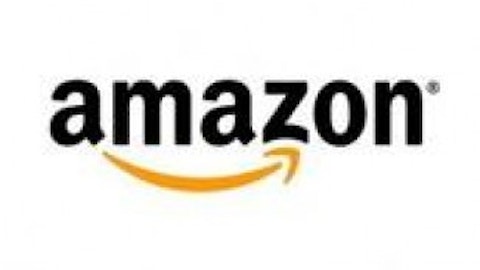Hedge funds generate a significant fraction of their alpha from small-cap stocks, primarily because the information surrounding this space is less efficient. At Insider Monkey, we’ve empirically tested this phenomenon, and according to our analysis, hedge funds’ top small-cap picks generate an alpha of about 120 basis points per month.
We started publishing a quarterly newsletter at the end of August, and since then, until the end of December, this strategy returned 14.3% vs. 2.1% for the S&P 500 index (learn more about our small-cap strategy).
With this in mind, it’s important to do a fund-by-fund analysis. Let’s take a look at one hedge fund in particular: Robert Karr’s Joho Capital. Using our database of 13F filings from the SEC, we’ll take a look at the fund’s small-cap holdings in its 11-stock portfolio (see Joho Capital’s full fund profile). Each had a market capitalization between $1 billion and $5 billion at the end of the third quarter, which is the same benchmark used in our market-beating strategy.
New Oriental Education & Tech Group (NYSE:EDU) is Karr’s favorite small-cap stock, sitting at the No. 4 spot in the hedge fund manager’s 13F portfolio. The Chinese company provides private educational services, and has lost over 25% of its market capitalization over the past 12 months. Most of this decline occurred last July, when news broke that the SEC was investigating the company’s accounting practices.
Sentiment has since improved over this situation, as the federal agency found no wrongdoing had occurred, but shares of New Oriental still trade at cheap forward P/E (14.8x) and PEG (0.86) multiples. With a long-range annual EPS growth forecast in excess of 20%, this stock represents a nice ‘growth at a reasonable price’ opportunity at the moment.
Next up we have SINA Corp (NASDAQ:SINA), Karr’s second largest small-cap holding. Sina is one of the most dominant Internet companies in China, and is most widely known for its Weibo micro-blogging site. On the whole, analysts expect Sina to generate earnings growth of 23-24% a year over the next half-decade, and the company is coming off of two consecutive quarterly EPS beats. Shares of Sina currently trade at 5.4 times its cash and 3.3 times book, indicating that investors can still snatch up this growth stock at a relatively decent price.
Who’s the best of the rest?
Veeco Instruments Inc. (NASDAQ:VECO), meanwhile, is the hedge fund manager’s third favorite small-cap stock, sitting at the No. 8 spot in his portfolio. Veeco experienced precipitous appreciation in 2009, 2010 and the first half of 2011 before concerns over the company’s reliance on the solar energy segment cut shares in half. The stock has since recovered slightly, but is still down 23.9% over the past two year-timeframe. Ignoring short-term headwinds, Veeco is a good buy for any investor looking for exposure to renewables, and the company’s earnings trade at a near 50% discount to the semiconductor industry’s average.
Last but certainly not least, Yelp Inc (NYSE:YELP) is Karr’s final small-cap stock pick, and was actually purchased in the fourth quarter of 2012, according to Joho Capital’s 13G filing with the SEC. Karr joins prominent hedge fund managers Steven Cohen and Ken Griffin in the company (see all of Ken Griffin’s stock picks). Shares of the leisure search and review site have bounced by double-digit percentage points this year, but on the whole, Yelp hasn’t been a very solid investment since its IPO last March, losing almost 14% in total.
A major issue for Yelp going forward is increased competition from larger social networking sites Facebook (FB) and Google Inc (NASDAQ:GOOG). Facebook’s January 15th announcement of Graph Search sent Yelp’s stock price down more than 6% on the day, as investors expect the feature to give users their friends’ business reviews, hurting Yelp in the process. Google’s acquisitions of Zagat and Frommer’s over the past couple years gives the company an edge in the professional review space, for users unwilling to trust the average consumer.
From a valuation standpoint, Yelp is expensive despite the fact that the sell-side expects it to finish 2013 with positive EPS of 2 cents a share—the company is expected to record a FY2012 loss of 31 cents per share. While this year’s growth forecast is impressive, shares still trade at earnings (1058x), sales (11x) and book (9x) multiples far above industry averages. Google, in comparison, sports P/E (23x), P/S (5x) and P/B (3.5x) multiples that are much more reasonable.
Of the 11 Wall Street analysts who cover Yelp, just 2 hold buy ratings on the stock, but the group’s average price target does represent a 16-17% upside from current levels. There will always be debate over Yelp’s review filtering process, in addition to its ongoing battle with Google and Facebook, but momentum-seeking investors have plenty of justification if they do choose to mimic Robert Karr and Wall Street’s bullishness.
For more related coverage, continue reading here:
Karr’s Stake in Google Continues to Grow
This Tiger Cub Added to Joho Capital
Disclosure: I have no positions in any of the stocks mentioned above






